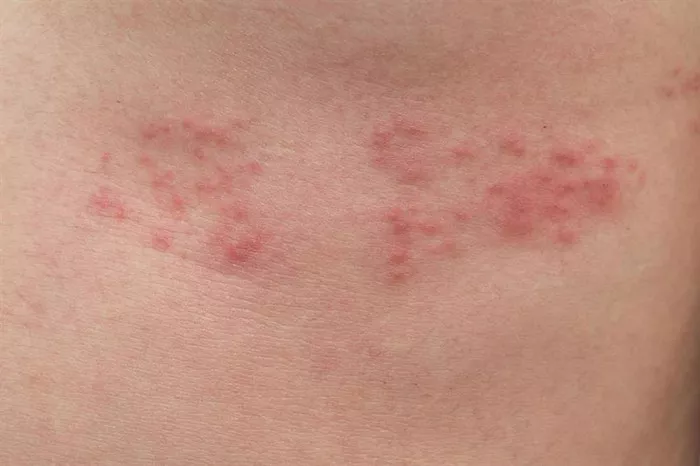Ringworm is a common fungal infection that affects the skin, nails, and scalp. Despite its name, it has nothing to do with worms. The infection is caused by fungi known as dermatophytes. These fungi thrive in warm, moist areas of the body, such as the feet, groin, or scalp. While ringworm is typically treated with antifungal medications, antibiotics are sometimes used in certain cases where bacterial infections complicate the condition. In this article, we will discuss the treatment options for ringworm, including when antibiotics might be necessary and which ones are typically prescribed.
Understanding Ringworm and Its Causes
Ringworm, medically known as tinea, is a superficial fungal infection that appears as a circular or ring-shaped rash on the skin. It can affect different parts of the body and is named based on its location, such as:
Tinea corporis: Ringworm on the body.
Tinea pedis: Athlete’s foot (ringworm on the feet).
Tinea cruris: Jock itch (ringworm in the groin area).
Tinea capitis: Ringworm on the scalp.
Tinea unguium: Ringworm of the nails.
The infection is caused by dermatophytes, a group of fungi that feed on keratin, a protein found in skin, hair, and nails. Ringworm is highly contagious and can be spread through direct contact with an infected person or animal, as well as through contaminated objects like towels, clothing, and surfaces. It can also be contracted from contact with infected soil.
The symptoms of ringworm vary depending on where the infection occurs but generally include:
- Red, itchy, or scaly patches on the skin.
- Circular or ring-shaped rashes with raised edges.
- Blister-like formations or crusting.
- Hair loss or broken hair (if the scalp is infected).
Why Are Antibiotics Sometimes Used for Ringworm?
Typically, ringworm is treated with antifungal medications. However, in some cases, antibiotics are prescribed if the infection becomes complicated. This usually occurs when a secondary bacterial infection develops on the skin affected by the ringworm.
For instance, if the ringworm causes the skin to break open, bacteria can enter and infect the area, leading to conditions like cellulitis. If this happens, the doctor may prescribe antibiotics to treat the bacterial infection. It’s important to note that antibiotics are not effective against the fungal infection itself but are used to treat secondary bacterial infections that may result from the ringworm.
Antifungal Treatment for Ringworm
Before delving into antibiotics, it’s important to understand the primary treatments for ringworm. The first line of treatment for ringworm involves antifungal medications, which can be applied topically or taken orally.
Topical Antifungals
For mild cases of ringworm, doctors often recommend topical antifungal creams or ointments. These can be bought over the counter or prescribed by a doctor. Some of the most common topical antifungals include:
- Clotrimazole (Lotrimin)
- Terbinafine (Lamisil)
- Miconazole (Monistat)
- Ketoconazole (Nizoral)
- Tolnaftate (Tinactin)
Topical antifungals are applied directly to the affected area, usually for several weeks, even after the rash clears up, to ensure that the infection is fully treated.
Oral Antifungals
In more severe or widespread cases of ringworm, oral antifungal medications may be required. These drugs are typically prescribed when the infection affects large areas of the skin, the nails, or the scalp. Common oral antifungal medications include:
Terbinafine (Lamisil) – Often prescribed for tinea corporis, tinea pedis, and tinea cruris.
Itraconazole (Sporanox) – Used for a variety of fungal infections, including those that affect the skin, nails, and lungs.
Fluconazole (Diflucan) – Used for fungal infections affecting the skin, scalp, and nails.
Griseofulvin – Typically used for scalp infections and stubborn cases of tinea.
Oral medications generally take longer to work than topical treatments, and treatment usually lasts from 2 to 6 weeks, depending on the severity of the infection.
When Are Antibiotics Needed for Ringworm?
As mentioned earlier, antibiotics are not used to treat ringworm itself. However, they may be prescribed in situations where the fungal infection has led to a secondary bacterial infection. If the skin affected by ringworm becomes scratched, cracked, or irritated, it may open up the skin barrier, providing an entry point for bacteria. This can result in conditions like:
Cellulitis: A bacterial infection of the skin that can cause redness, swelling, and warmth around the infected area.
Impetigo: A highly contagious bacterial infection that can cause honey-colored crusts on the skin.
Folliculitis: Inflammation of the hair follicles that can lead to pustules or bumps.
If a doctor suspects a secondary bacterial infection, they may recommend antibiotics, either topical or oral, to treat the bacteria. The specific antibiotic prescribed will depend on the type of bacteria involved and the severity of the infection.
Common Antibiotics Used for Secondary Skin Infections
Topical Antibiotics
For localized bacterial infections, doctors may prescribe topical antibiotics. These are applied directly to the affected area. Some of the most common topical antibiotics include:
Mupirocin (Bactroban): Used to treat bacterial infections such as impetigo or folliculitis.
Neomycin: Often found in combination with other antibiotics in ointments like Neosporin, it helps prevent bacterial infections in minor cuts or scrapes.
Oral Antibiotics
If the infection is more widespread or severe, oral antibiotics may be needed. Some of the most commonly prescribed oral antibiotics include:
Cephalexin (Keflex): A broad-spectrum antibiotic used to treat skin infections caused by bacteria.
Dicloxacillin: An antibiotic often prescribed for skin infections caused by staphylococci or streptococci bacteria.
Amoxicillin: A penicillin-based antibiotic that may be prescribed for certain types of skin infections.
Clindamycin: Often used for more serious skin infections or those resistant to other antibiotics.
Doxycycline: A tetracycline antibiotic that is sometimes used to treat bacterial skin infections, particularly those caused by Staphylococcus aureus.
How Antibiotics Work with Ringworm
Antibiotics work by targeting bacteria, not fungi. They can help control the infection when bacteria are involved, but they will not affect the dermatophytes that cause ringworm. In some cases, a combination of both antifungal and antibiotic treatments may be needed to address the fungal and bacterial infections simultaneously.
It’s important to complete the full course of antibiotics as prescribed by your doctor, even if the symptoms seem to improve. Stopping antibiotics prematurely can lead to antibiotic resistance, making future infections harder to treat.
When Should You Seek Medical Help?
While most cases of ringworm can be treated at home with over-the-counter antifungal creams, it’s important to consult a healthcare professional if:
- The infection covers a large area of your body.
- The ringworm does not respond to over-the-counter treatments after several weeks.
- The infection causes severe itching, pain, or swelling.
- You notice signs of a secondary bacterial infection, such as increased redness, pus, or warmth around the affected area.
- The ringworm infection is on the scalp or nails.
Your doctor can recommend the appropriate treatment, whether it’s a stronger antifungal medication, antibiotics for a secondary infection, or a combination of both.
Conclusion
Ringworm is a treatable fungal infection that typically requires antifungal medications. Antibiotics are not used to treat the underlying fungal infection but may be necessary if a secondary bacterial infection develops. If you suspect you have ringworm or are dealing with a complicated infection, it’s important to seek medical advice to ensure you receive the appropriate treatment. With proper care, most cases of ringworm can be cured without complications.
Related topics:


























